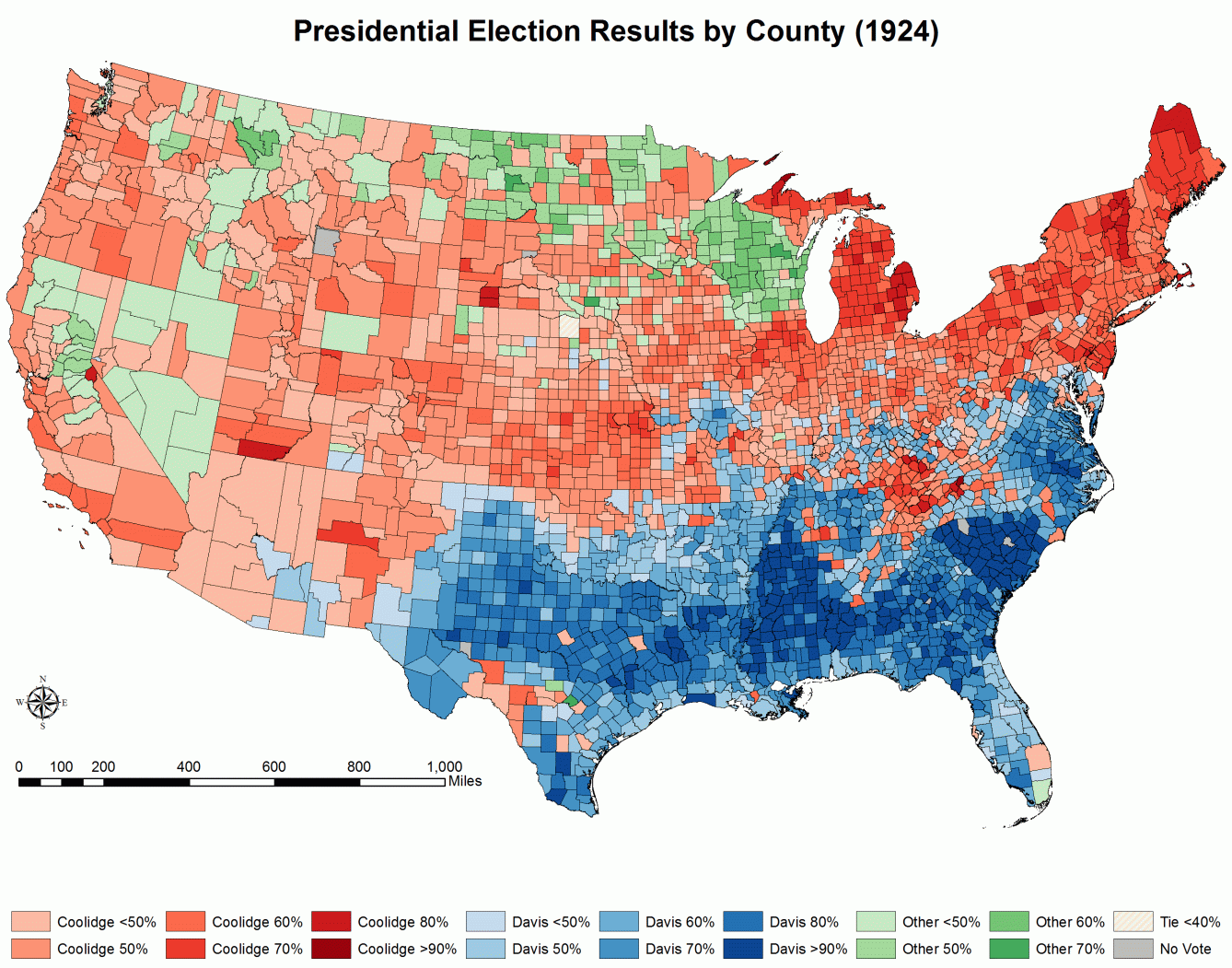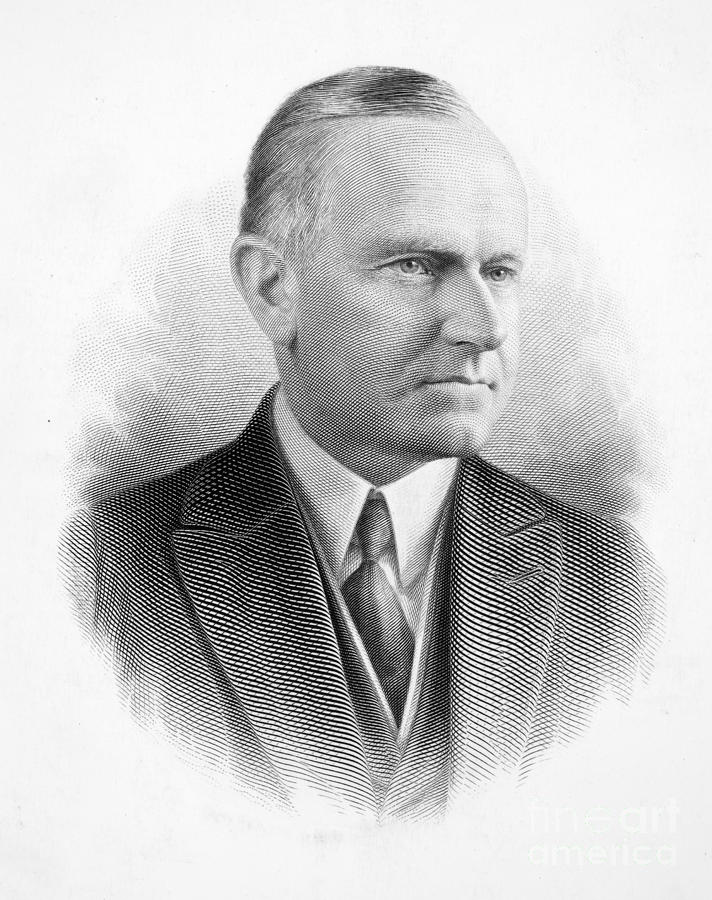It may come as a surprise that a coterie of critics, some members of the press and even a Party establishment existed in Coolidge’s day. They were hostile to the notion that one not of their number, lacking in sophistication or elite pedigree, could attain to the Presidency. Taken together they are what Charles Willis Thompson called, “The Intellectuals.” It is no different now for anyone with the courage and common sense to run for elective office independent of and without approval from the self-appointed political and cultural establishment. The Intellectuals had to reckon with Coolidge’s genuine and immense popularity. Henry Cabot Lodge, Republican Senator of Massachusetts, when told that Coolidge was being considered by some to lead the national ticket in 1920, sneered, “Nominate a man who lives in a two-family? Never!”
The fact that Coolidge, from his earliest years in state politics, consistently garnered more votes than any other Republican did. It was no secret that he secured more votes as Lieutenant Governor than his partner, Governor McCall, in the 1916 race. Even as the state went Democrat and Republicans lost their seats, Coolidge kept winning by greater and greater margins. “The Intellectuals,” chagrined at each electoral success, could not believe he was capable of winning the next time. Yet, win he did. In the presidential election of 1924, the man they had dismissed as a lightweight, local fad whom they would easily discard, perhaps along with Harding, went on to surpass challengers, secure a unanimous nomination and win an unprecedented landslide of 15.7 million voters in a three-way campaign, achieving what conventional wisdom said could never be done, especially after the outcome of 1912.
The Party elites had a clear champion in their midst but rather than rally to him, they maintained their skeptical alienation. He was not of them and never would be. Of course, he held an unshakable belief in party loyalty, not to simply secure office for himself or others but to advance principles he knew were right and tested true by human experience. The “secret” to his success lay not in the path of expediency, watering himself down to match what made him “electable” in the eyes of the “experts.” He required no pollster, no consultant, no speech writer to tell him what to believe. Decades before “Reagan Democrats,” the hard-working, patriotic, religious, “blue-collar” family men of manufacturing, service and industry were “Coolidge Democrats.” He earned their trust not through threats, manipulation, calculated promises, misinformation, pandering or even back-door dealing. His recipe for such stunning success, a genuine popularity and political success held all his life, was due to two simple qualities: “Simple words and straightforward acts” comprised Coolidge’s “magic” (Thompson, Presidents I’ve Known and Two Near Presidents, p.354). “The Intellectuals” never understood this. In the end, even as Coolidge walked away from office and continued to enjoy a level of popularity very few former Presidents have, the elites blamed it on the stupidity and simplicity of the American “masses.”
Thompson explained in 1929,
“As for the Mystery of 1924–the mystery of his election by a tremendous majority when so many towering geniuses had demonstrated that he hadn’t a chance–that too, was psychological. He was elected on that day in 1923 when he sent his first message to Congress. The country had heard language for many years. The unceasing, all-embracing sea of it had swollen until it reached high tide under Wilson…The country was apathetically resigned to a permanent government by language.
“Therefore, the first official word it heard from Coolidge was sensational. Not only was there no purple in the message, but there was no ratiocination, no argument, no stock official phrases. He told Congress what he thought would be for the good of the country and told it as briefly as he could. One of the things it wanted was economy. The burning question of that day, the soldier’s bonus, he treated in a single sentence, merely saying he was opposed to it; this at a time when the conventional attitude for politicians on the bonus question was astride the fence.
“The country rubbed its eyes. Here was a President of an entirely new kind. The country waited long enough to see if Coolidge meant what he said. He had just one session of Congress to prove it in. He did. Throughout that session he worked hard to get Congress to carry out the recommendations he had made…The country liked him immensely; it did after he had been President only a year…It liked Coolidge in 1923; it even made up its mind definitely that he was the kind of President it wanted. His first message to Congress fixed his popularity, and it increased until, to the astonishment of the politicians, they had to nominate him in obedience to a popular demand they did not understand and could not account for” (Thompson p.357).

Presidential Election of 1924 by county, showing Coolidge’s very impressive support across the country. Securing 54% of the popular vote (15, 723,789 of 29 million votes cast) and 382 electoral votes (35 of 48 states, 71.9% of 531 electoral votes) to 136 (for Democrat Davis) and 13 (for Progressive La Follette), Coolidge shattered the conventional wisdom that he was both “unelectable” beyond Massachusetts and incapable of prevailing in a three-way race nationally. He even continued, as had begun in 1920, breaking into the supposedly monolithic counties of the Democrat “Solid South” as well as the supposedly un-winnable Progressive West. No one has ever overwhelmed a Third Party challenge and a Democrat bloc before or since without throwing the election into the House (1824) or losing to the Democrats (1912, 1992).
Just as is the case now, the “talking heads” of media networks, the establishment of Party politics, and many of the gatekeepers of cultural trends revealed their utter insensibility to what Americans understood and felt about the country and its future. This institutionalized tone deafness swept them aside in 1924 and the foundations are already in place to do it again in the Congressional races of 2014. The “silent majority” of American politics led their leaders in 1924, and that same process is poised to happen again. Coolidge saw this as a vindication of the people’s sovereignty over their government. He was not threatened, as some are, by such an event. Coolidge would not even name a Vice President, leaving the delegates to make that decision, saying with a sparkle in his eye, “It did in 1920 and it picked a durned good man.”
Thompson continues,
“Throughout that campaign the Intellectuals were confident that even so stupid an electorate as the American one could not elect such a poor boob as Coolidge, and they never did account for the avalanche which swept him into office. Senator La Follette did emerge from under the avalanche long enough to offer a sort of explanation; he intimated that the sixteen millions who voted for Coolidge were bought up, and self-sacrificingly promised to go on working for the interest of these corrupted ‘masses’; but the Intellectuals didn’t accept that explanation, and finally concluded that it was just another proof of the incorrigible wrong-headedness of the electorate, or, as H. L. Mencken calls it, the ‘booberie’ ” (Thompson p.357).
The same effort by the elites to make sense of the current American groundswell of opposition to the direction its “leaders” are taking the country will follow much the same route, whether the issue be Chris Christie for President or new green cards for the nearly 12 million illegals living in the country. In the end, these elites will not acknowledge their deficiencies of vision or their failures to deserve leadership, they will blame the American voter for being too dumb to understand who and what is good for the country. The challenges we face, and they are supremely daunting, heading into these next two years will require the utmost involvement from the American people to become informed, take up their sovereign duty as participants not merely spectators in politics and perpetuate the republican ideals the Founders presciently secured. They did so not merely for themselves but for us and our children. Staying at home as so many did in 2012 ultimately hurts ourselves and the future of the country. Teaching the establishment a lesson by abstaining from our solemn duty to vote never reaches its intended purpose any more than is surrendering our dual system for a Third Party in 2016.
We simply need to better exercise our power to choose qualified leaders at the primaries, replacing those unfit for public trust. As Coolidge reminds us, our destiny rests in our own hands at the ballot box. If we shirk it there, we have no place to protest the stripping of our freedoms after the election by those we have directly or indirectly sustained in power. That is how serious the vote remains this year, of all years. The ideals the Founders fought to establish, held by subsequent leaders like Calvin Coolidge, are perpetuated not through the choice of an elite few, but through the determined will of an engaged American people.
